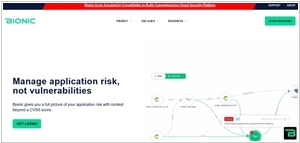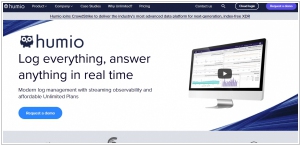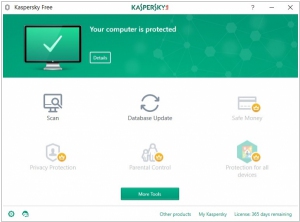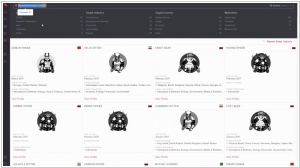CrowdStrike vs Kaspersky
August 02, 2023 | Author: Michael Stromann
CrowdStrike and Kaspersky are two well-known cybersecurity companies with different approaches to protecting organizations from threats.
CrowdStrike is recognized for its cloud-native Falcon platform, which focuses on endpoint protection and advanced threat intelligence. Leveraging behavioral analysis, machine learning, and threat hunting capabilities, CrowdStrike offers real-time detection and response to both known and unknown threats. The platform's cloud-based architecture allows for quick deployment and centralized management, making it suitable for organizations prioritizing fast threat identification and remediation.
Kaspersky, on the other hand, provides a comprehensive suite of cybersecurity solutions that cover a wide range of areas, including endpoint security, network security, and threat intelligence. Kaspersky's offerings include features such as anti-malware protection, network traffic analysis, vulnerability management, and more. The company's deep experience in the cybersecurity field and its global presence have made it a trusted choice for many organizations.
See also: Top 10 Antivirus Software
CrowdStrike is recognized for its cloud-native Falcon platform, which focuses on endpoint protection and advanced threat intelligence. Leveraging behavioral analysis, machine learning, and threat hunting capabilities, CrowdStrike offers real-time detection and response to both known and unknown threats. The platform's cloud-based architecture allows for quick deployment and centralized management, making it suitable for organizations prioritizing fast threat identification and remediation.
Kaspersky, on the other hand, provides a comprehensive suite of cybersecurity solutions that cover a wide range of areas, including endpoint security, network security, and threat intelligence. Kaspersky's offerings include features such as anti-malware protection, network traffic analysis, vulnerability management, and more. The company's deep experience in the cybersecurity field and its global presence have made it a trusted choice for many organizations.
See also: Top 10 Antivirus Software
CrowdStrike vs Kaspersky in our news:
2023. CrowdStrike acquires Bionic.ai for $350M

CrowdStrike has acquired Bionic.ai — a security posture management platform for cloud services — for $350 million. Bionic.ai's primary function is to provide security teams with a comprehensive overview of a company's technology and IT landscape, helping them identify vulnerabilities. It's worth noting that Bionic.ai's annual recurring revenue (ARR) was below $10 million, a pivotal metric in the Software as a Service (SaaS) sector for assessing business performance. CrowdStrike primarily focuses on services related to endpoint security, threat intelligence, breach response, and it already offers its own security posture management service under the brand "Falcon." The acquisition of Bionic.ai is expected to provide CrowdStrike with an enhanced level of visibility and observability for security operations teams.
2021. CrowdStrike acquires logging startup Humio for $400M

CrowdStrike, an enterprise-focused cloud-native cybersecurity company specializing in endpoint protection and threat intelligence, has revealed its intention to acquire Humio, a log analysis and observability startup based in the United Kingdom. The deal, primarily conducted through cash transactions, is estimated to be valued at around $400 million. Humio gained recognition in the realm of cloud log-management and observability since its establishment in 2016 in London. The company has distinguished itself through its innate capability to ingest and analyze both unstructured and semi-structured data. Backed by investors like Accel and Dell, Humio has secured over $30 million in funding, while serving prominent customers such as Microsoft and Bloomberg.
2017. Kaspersky Lab released free antivirus

Kaspersky Lab has recently introduced a free version of its antivirus software in the U.S., with plans to expand its availability globally within the next four months. Known as Kaspersky Free, this offering provides essential core features, such as email and desktop antivirus protection, the ability to quarantine infected files, and automated updates. However, the free version does not include certain premium features available for purchase at $50 per device annually. These features encompass a virtual private network (VPN), parental controls, and additional protection for online financial transactions. Kaspersky emphasizes that its free software option is designed to be light on advertisements. Nevertheless, it is important to note that users may indirectly compensate for the uncluttered interface by providing user data to Kaspersky.




